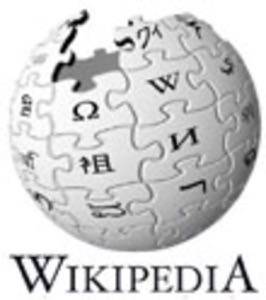This week we received an email from a reader telling us that he’d tried to add a link to ReadWriteWeb onto a Wikipedia article, only to get the message: “The following link has triggered our spam protection filter: http://www.readwriteweb.com. Either that exact link, or a portion of it (typically the root domain name) is currently blacklisted.” After a bit of investigation, we discovered that our site had been blacklisted by Wikipedia in mid-2008 and labeled as ‘spam’! There is no explanation on Wikipedia as to why this happened. We certainly don’t think we’ve done anything that would justify being blacklisted. So after some emailing and twittering, we found out that the way to challenge this blacklisting was to make our case on this Wikipedia page.

UPDATE, Sunday 15 February PST: RWW has now been removed from the Wikipedia blacklist. I still think that RWW should never have been on the blacklist to begin with, it was simply not justified. However it appears that my personal comments on Wikipedia, now and in the past, may have upset some people – so for that I offer an apology to the offended parties.
We soon discovered, however, that Wikipedia has a general policy of not accepting citations from blogs. We think that policy is ridiculous in this day and age. Not only that, but it is not being consistently applied – we appear to be the only professional blog on Wikipedia’s blacklist! The whole sad and frustrating story is below.
The Curious Case of ReadWriteWeb vs Wikipedia
I made our case, as founder/editor of ReadWriteWeb, on the talk:Spam-blacklist page onWikipedia. After explaining the circumstances, I asked that we be removed from the blacklist: “We have no idea why ReadWriteWeb would be on the Wikipedia blacklist and we respectfully request that you remove it from there. We are a respectable and reputable tech news blog. RWW is a solid primary source which can act as a good citation for many Wikipedia entries.”
The ‘appeal’ was soon declined by a Wikipedia administrator who goes by the handle of Hu12. This person (who doesn’t divulge his real name) claimed that “Blogs, and Blog sites are Link normally to be avoided”, going on to say that “ReadWriteWeb Fails Wikipedia’s core content policies”:
- “Verifiability”
- ” Questionable_sources”
- “Verifiable Reliable Sources”
- “Self-published sources (online and paper)”
- “Reliable sources”
- “Self-published sources
Another Wikipedia administrator, Steve Walling, jumped to our defence, noting that ReadWriteWeb “has a defined editorial structure in its writing staff, and it is syndicated (center column) by The New York Times Technology section” and that “I could conceivably see using the site either as a source (though not as a sole one to assert notability), or simply as a good resource to link to in external links.”
I followed up by also noting that ReadWriteWeb appears to have been singled out, as no other top blog has been put on the blacklist. In our view it is double standards to single out ReadWriteWeb for blacklisting under the ‘blogs are to be avoided’ policy. Not only that, but most other blogs in Technorati’s top 20 have their own Wikipedia pages (we currently do not).
The Prosecution Quibbles
Frankly I had hoped common sense would kick in at this point, however Hu12 responded: “If a specific link is needed as a citation, an established editor (such as Steven Walling) can request it on the whitelist on a case-by-case basis”.
In other words, ReadWriteWeb must stay on the blacklist, but it’s possible for “an established [Wikipedia] editor” to whitelist it on a case-by-case basis. Clearly this is unsatisfactory and fails to address the issue of why RWW is being singled out. Again, Steven Walling (who for the record I don’t know) came to our defence:
“Hu, I’m saying that I think RWW is reliable and popular enough that it should be used in appropriate articles, and not just by established editors like me. A similar example here is TechCrunch, which would never hold up to WP:RS in say, a history article, but is used all the time to verify information about the field it covers, since it (and RWW) is a top source of trusted information in this arena. I’m personally okay with asking for a case-by-case exception, but as you can see in his first comment, there may be other people who aren’t established who think that RWW is a legitimate resource for the ‘pedia. I agree, and I don’t see any reason for the site to be on the blacklist either. The 17th most popular blog on the Net doesn’t need to spam us to get traffic.”
At this point a Wikipedia user called KGyST labeled the decision to blacklist RWW “absurd and childish”. Hu12 again responded:
“Even if I were to agree (and Steven Walling makes a wonderfull case, IMHO), Blogs despite the quality or form of publishing, still remain a WP:SPS which has inherent problems. Because Self-published work could potentialy be acceptable to use in some circumstances, is the reason why I suggested its use be on a case-by-case basis.”
(our emphasis)
What Does Wikipedia Have Against Blogs?
So the crux of the issue, according to Hu12, is that blogs are a “self-published source” and therefore shouldn’t be used as citations on Wikipedia. Leaving aside the important point that ReadWriteWeb appears to be the only professional blog that is being excluded based on that policy, let’s look at Wikipedia’s definition of “self-published source”:
“Anyone can create a website or pay to have a book published. For this reason, it is usually not acceptable in Wikipedia to cite self-published books, newsletters, personal websites, open wikis, blogs, knols, podcasts, vcasts, patents, patent applications, forum postings, and similar sources.[5]”
The definition goes on to say that self-published work may be used “in limited circumstances”, but the key point here is that blogs are not considered by Wikipedia to be a reliable form of media.
This is a sadly out-of-date definition of a blog. As another Wikipedia commenter, Alexander B. Howard, noted in this discussion: “This distinction between ‘blogs’ and ‘newspapers’ is worse than archaic; it fundamentally dismisses the immense disruption in the media industry.”
Oh The Ironies
It’s also deeply ironic that Wikipedia – a poster child of the Web 2.0 revolution, the read/write user participation Web – fails to recognize the validity of “self-published” media. Wikipedia is by its own definition a “self-published” work, created and edited by thousands of amateur volunteers.
In our specific case there’s a further irony: the world’s most famous newspaper, The New York Times, syndicates ReadWriteWeb on the Technology section of its website. In other words, ‘old media’ recognizes the validity of blog content. Yet Wikipedia, supposedly as ‘new media’ as it gets, does not. Frankly, it’s sad and pathetic.
I’m hopeful that common sense will eventually prevail and that not only will ReadWriteWeb be taken off the Wikipedia blacklist, but that Wikipedia will change its outdated policy to exclude blogs from being cited in its pages (even though this policy isn’t actually being enforced, outside of the RWW case).
Getting back to our quest to get our site off Wikipedia’s blacklist. As of writing, another anonymous Wikipedia administrator Gnangarra has waded in with an even more narrow-minded view than Hu12’s:
“…the blogs are written by freelance writers and published without editorial review. The writers are then paid by the number of hits to the article which meant that the writers were spaming WP articles with links back to their article.”
Well, that’s not only wrong (we don’t pay our writers based on hits or page views) but it again evades the central questions: why are professional blogs not viewed as citation-worthy and why is RWW the only major blog being singled out? You can follow this case on the talk:Spam-blacklist page onWikipedia, as it continues to be played out.






